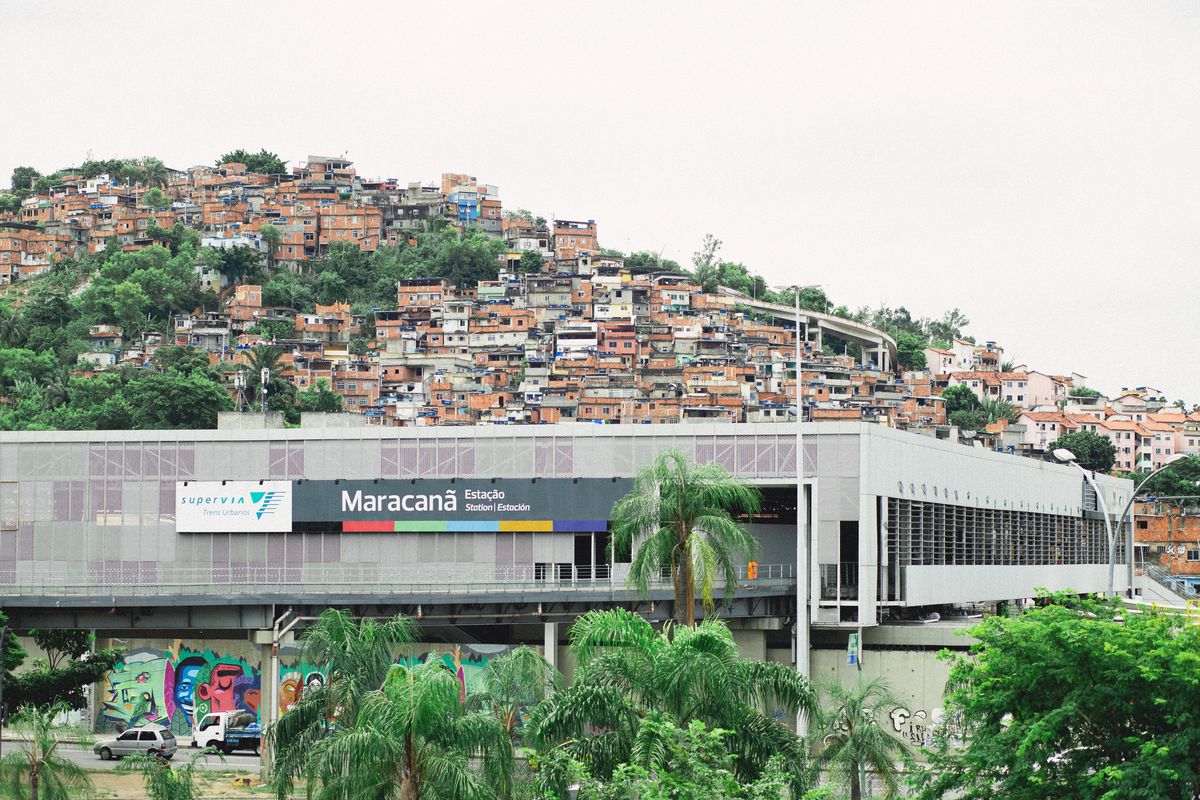‘I wanted to show a world of purity’: GU soccer player turned director’s ‘Nando’ premieres at Tribeca

When Nando, a Brazilian pre-pubescent, stares out at Maracana Stadium, the soccer-obsessed child dreams of attending a contest at the massive venue in Rio de Janeiro. Even though Maracana is less than 1 mile from Nando’s favela, a Brazilian slum, where gunshots and poverty are a way of life, the soccer palace may as well be on the other side of the planet.
Former Gonzaga soccer player Alec Cutter’s film, “Nando,” an emotional and compelling short, focuses on the aforementioned child. The movie was screened Thursday at New York’s Tribeca Film festival. The film can be viewed through June 23 via Tribeca at home at tribecafilm.com/films/nando-2021 with the purchase of a $25 shorts pass.
“Nando’s world is very small,” Cutter said. “I want people to see this child and that he can belong to something and the harsh realities he experiences every day. I also wanted to show how much of a business sports has become. I wanted to not focus on how bad life could be but how beautiful it can be.”
Rio de Janeiro is worlds apart from Spokane. Cutter grew up on the South Hill but left for Rio after graduating from Gonzaga in 2014. The epicenter of Brazil appealed to the former soccer player who was part of the Zags team.
“Soccer has been in my heart since I was very young,” Cutter said from his New York apartment. “I loved watching the Brazilian national teams. When I had the opportunity to live there, I jumped at the chance.”
After trying out for a pro club in Rio in 2012, the Ferris High alumnus, class of 2010, left for South America in 2014. The physical education major lived on the cheap in Rio in the same favela as Nando.
“The harsh reality is right there for you to experience every day,” Cutter said. “It’s very different than what I grew up with in Spokane.” But Cutter, 29, was inspired by his surroundings and wrote the book “Emancipate My Life: Living a Life of Genuine Happiness Through the Cultivation of Humanistic Values,” which hit shelves in April.
The seeds were planted for a peaceful existence at Gonzaga, where Cutter studied the teachings of the Dalai Lama. After living in Brazil for a year, Cutter decided to study film in New York in 2016. Cutter returned to Brazil in 2019 to make “Nando,” a moving short film about a shy soccer-loving boy struggling in a hardscrabble environment.
Cutter connected with some big guns who made the film possible. He wrote a poem about a caterpillar, which is recited by Brazilian icon and actor/musician Seu Jorge (“City of God,” “The Life Aquatic With Steve Zissou”) during the film, and the project is produced by Brazilian soccer legend Dani Alves.
“I’m very fortunate,” Cutter said. “They’re both really big deals in Brazil. Seu is a great musician who blew up as an actor. He grew up in a favela, so he understands where Nando is coming from. You have to live in that world to understand it. I paid $40 a month, and my roof leaked, and it was harsh. But, what I experienced in the favela was kindness and a wonderful sense of community and beauty.
“With the movie, I wanted to show a world of purity where there are dreams and hope from a child’s perspective.” All of that is conveyed during the six-minute short. Nando’s view of the stadium borders on the mythical. “I heard it is 300 years old,” Nando says.
Maracana was constructed in 1950. But Nando is on the money when he speaks of how inaccessible it is to attend a game due to the expense of tickets. Many Americans with disposable cash take attending events for granted, but then there’s Nando literally on the outside gazing at a colossal, modern venue, which is the home of his favorite soccer club.
Thanks to Cutter, Nando and his siblings attend a game. During the credits, Nando, who was 10 years old when the film was shot in 2019, finally makes his dream journey to Maracana Stadium. The unbridled joy from the ecstatic children cheering wildly from the stands is palpable.
“It was very emotional bringing Nando and his older and younger brother to a game,” Cutter said. “I had my back to the field the whole time, but it was my favorite memory of going to a game since Nando and his brothers enjoyed it all so much. They saw the most famous club in all of Brazil, Flamengo. You see Nando always wearing their black and red jersey in the film. Seeing his team meant everything to him.”
“Nando,” his first independent feature, screening at the Tribeca Film Festival means a lot to Cutter. “I’ve come full circle,” Cutter said. “A few years ago, I started studying film in New York, and now I have a film at the Tribeca Film Festival.
“It’s just amazing. I’m so glad that this film is getting exposure since it’s a good story, and I worked hard on it. I was the co-producer, cinematographer and editor. It’s good to be a one-man crew.”
Cutter is an interesting story in his own right. Not many physical education majors morph into filmmakers. Even though Cutler found himself after leaving Spokane, the seeds were planted in his hometown.
“I love Spokane,” Cutter said. “Growing up there had such an impact on me. There are so many great people there. I enjoyed growing up on the South Hill. It was a great community, and it still is. My parents (Bruce Cutter and Debbie Brinker) are still there (in Liberty Lake).”
For now, Cutter splits time between New York City and Brazil. “I get to do what I need to do here professionally,” Cutter said. “Film is the medium for me to convey my message as I attempt to get to a deeper part of humanity.”